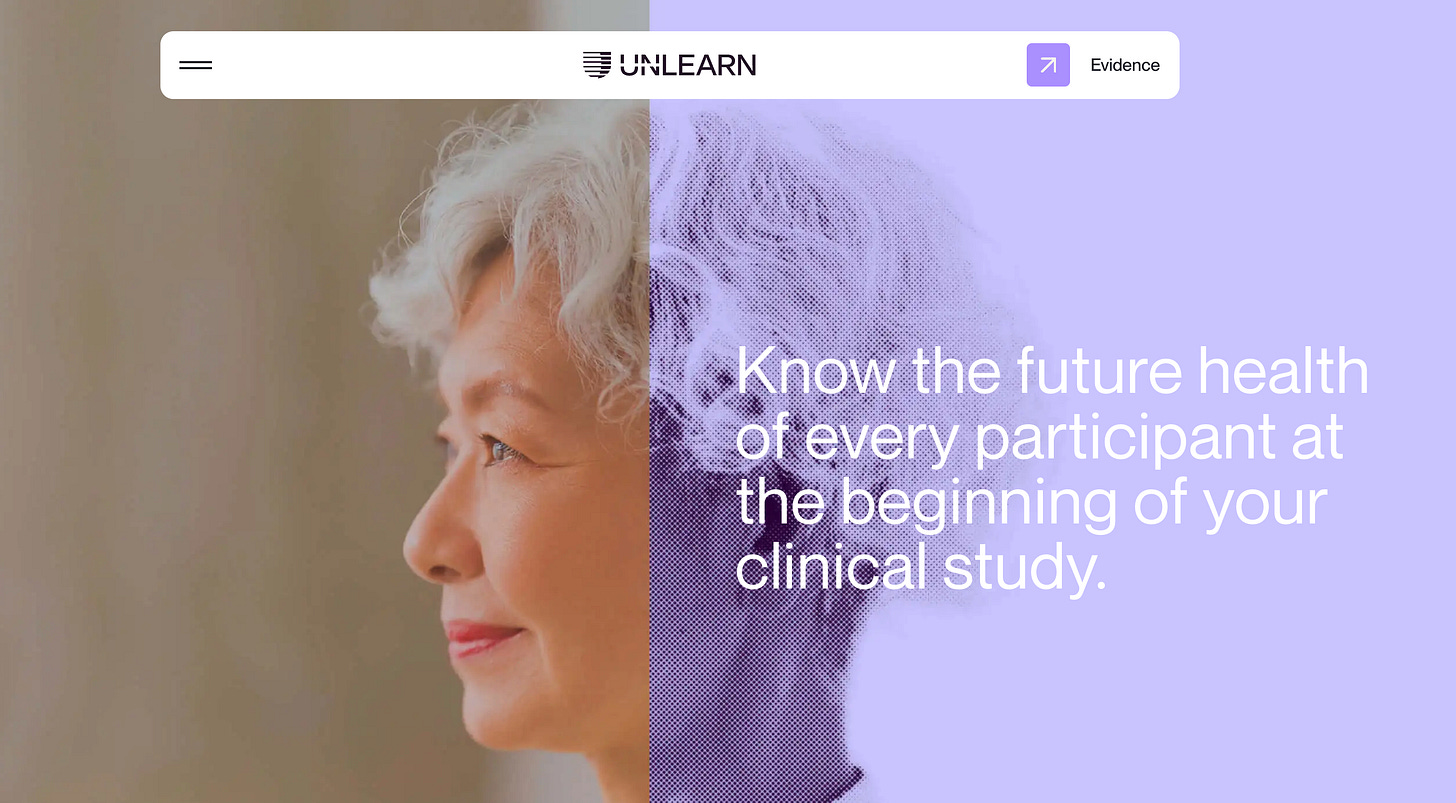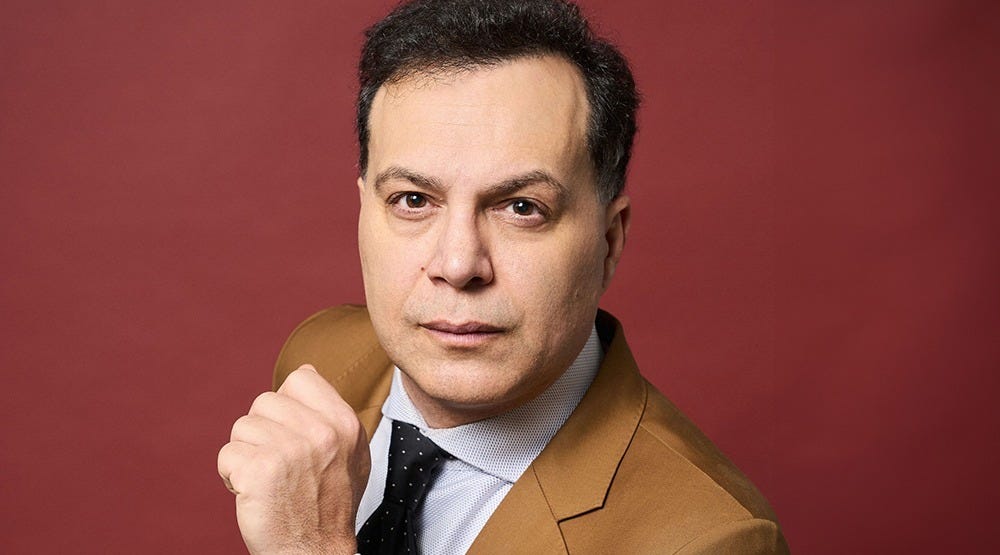Digital Twins, Dementia Drugs, and Lab-Grown Organs
Plus 15 new health tech job opportunities in the US, UK, and France
Oh hey there 👋
Here’s what’s inside this week’s newsletter:
🧬 Digital twins replacing control groups in clinical trials
🧠 New oral drugs to slow dementia
🧫 Lab-grown mini organs for personalised drug testing and disease modelling
📣 A quote from Dr. Ronald Razmi on data, AI, and the future of medicine
🔍 15 hand-picked jobs in the US, UK and France
Enjoy! 😊
Company of the Week
Unlearn: Using AI-Powered Digital Twins to Transform Clinical Trials
Testing new drugs can take over a decade and cost billions.
Clinical trials often involve thousands of participants and are designed to determine both the effectiveness and safety of a drug. But what if we could run these trials with fewer participants — without compromising scientific rigour?
That’s the goal of Unlearn, a San Francisco-based AI company using digital twins to accelerate clinical research.

A digital twin is a personalised prediction of how a participant in the control group (who doesn’t receive the experimental drug) would likely respond.
When someone joins a clinical trial to test a new drug, Unlearn creates a digital twin using their baseline health data. This digital twin acts as a highly accurate, individualised forecast of what would happen under standard treatment i.e. if they were in the control group.
This approach allows trials to reduce the number of people who need to receive a placebo or standard care (although some participants are still randomly assigned to the control group to help correct for any bias in the predictions).
“If you have a clinical trial with 1000 patients and you can remove 25% of the control group, that could translate into four to five months of shorter time to complete enrollment in your study,” said Unlearn’s founder, Charles Fisher. “And 50% is major. That can actually save you close to a year in terms of your clinical trial timeline.”

Unlearn’s method has already been recognised by regulators, including a novel methodology qualification opinion from the European Medicines Agency.
If widely adopted, this approach could transform how trials are run — making them more ethical as fewer participants receive placebo, more cost-effective, and faster to bring effective new treatments to patients.
For more info about Unlearn checkout:
Digital twins in clinical trials: How they work, and how they don’t — Unlearn’s Substack
The Story of Unlearn.ai with Charles Fisher — The Healthtech Podcast

Lessons of the Week
1. Oral drugs to slow dementia
AstronauTx, a UCL spinout backed by the Dementia Discovery Fund and Novartis Venture Fund, is developing oral drugs that aim to keep the brain functioning better for longer in people with dementia.
Unlike current treatments focused only on removing amyloid (plaque buildup in the brain), AstronauTx targets astrocytes—support cells that help keep neurons healthy.
The drugs are designed to work across multiple neurodegenerative conditions and complement existing therapies. The company expects to start clinical trials in the next few years.
If successful, the first treatments could be available in the 2030s—offering a new, more holistic way to slow dementia progression and improve brain health.
2. Menopause should be seen as 3 different disorders
“We should get rid of the word menopause and instead think of it as three separate conditions — estrogen, progesterone, and testosterone deficiencies.”
Dr. Louise Newson, a physician, menopause specialist and member of the UK Government’s Menopause Taskforce, states that menopause isn’t just about when women have their last menstrual period, it’s about hormone deficiencies.
If we reframe how we think about menopause we can help women get the right treatment they need much faster. She says:
“We’re letting down women by ignoring them and not being more proactive in helping diagnose them properly. I see so many women who have been struggling for years, not getting the right treatment and when they do they say ‘I wish I’d started taking testosterone ten years before I did’”.

3. Mini lab-grown organs, called organoids, could transform healthcare
Organoids are tiny, lab-grown versions of human organs, created from stem cells.
Researchers have already developed organoids that mimic organs such as the brain, liver, lung, or kidney by simply giving stem cells specific genetic instructions.
These “mini-organs” are made up of multiple cell types and behave much like the real thing. They let researchers observe how organs develop, how diseases form, and how drugs might affect human tissue — all without needing to test on humans or animals.
In the future, organoids could speed up drug discovery, make treatments more personalised, and help scientists better understand complex diseases — transforming how we study and treat human health.
Quote of the Week
“Pilots used to fly planes manually, but now they operate a dashboard with the help of computers. This has made flying safer and improved the industry.
Healthcare can benefit from the same type of approach, with physicians practicing medicine with the help of data, dashboards, and AI. This will improve
the quality of care they provide and make their jobs easier and more efficient.”
― Ronald M. Razmi, AI Doctor: The Rise of Artificial Intelligence in Healthcare - A Guide for Users, Buyers, Builders, and Investors

Health Tech Jobs of the Week
🇺🇸 US
📦 Principal Product Manager – Collectly | (Not listed) | 📍 San Francisco, CA
Focus on patient payment workflows and outreach to enhance the revenue cycle at a healthcare tech firm improving billing experiences.🩺 Clinical Team Member (MD/DO/NP/PA) – Truemed | (Not listed) | 📍 Remote
Join a growing clinical team delivering innovative healthcare solutions to improve patient outcomes and streamline care.💰 Revenue Cycle Manager – Seven Starling | $80,000–$110,000 | 📍 Remote
Lead and scale the billing team at a fast‑growing maternal mental health startup offering virtual care perinatal support.📣 Sr. Product Marketing Manager – Thyme Care | $145,000–$170,000 | 📍 Remote or NY
Lead product marketing to communicate B2B value at a company transforming the cancer care experience through patient‑centered solutions.🚀 Sales Effectiveness Manager – Aledade | (Not listed) | 📍 Remote (HQ in VA)
Lead strategic planning and deal architecture to enhance sales at a company partnering with primary care physicians on ACOs.🧠 Advanced Practice Psychiatric Nurse Practitioner – Mind and Match | (Not listed) | 📍 Wisconsin (Contract, Remote)
Shape the expansion into psychiatric services at a virtual therapy company.📈 Director, Business Operations – Midi Health | (Not listed) | 📍 Remote
Lead and optimize business operations at a mission‑driven company transforming women’s health.🤖 ML Ops Engineer – Brain‑Computer Interface Company | (Not listed) | 📍 Remote
Develop ML infrastructure to support neural data processing at a pioneering AI/hardware company studying brain activity.👨⚕️ Medical Director – Counsel Health | $210,000–$250,000 + equity | 📍 Remote
Lead the clinical team delivering care on an AI‑enabled platform backed by tier‑A investors and strategic partners.💵 Finance Manager, Marketing – Maximus | $130,000–$150,000 | 📍 Remote (PST/MST/CST preferred)
Own FP&A and support marketing spend at a performance medicine company offering virtual at‑home testing and treatments.🌍 Director of Growth, New Ventures – Pomelo Care | $175,000–$190,000 | 📍 Remote or NYC
Run marketing efforts for new ventures at a virtual maternal care company tackling the maternal health crisis.
🇬🇧 UK and 🇫🇷 France
🧠 Assistant Psychologist – HelloSelf | (Not listed) | 📍 London, EC2A 3JT
Join a digital therapy platform to support mental health services as an assistant psychologist in a clinical setting.🤝 Head of Customer Success – Log my Care | £70,000–£90,000 | 📍 London
Lead customer success strategy at a mission-driven care management platform used by thousands of care providers across the UK.🧬 Lead Technical Adviser, Solutions – Wellcome Trust | From ~£91,700 | 📍 London, UK (Hybrid)
Exciting opportunity to play a pivotal role in health advocacy at Wellcome Trust, a globally recognised foundation tackling mental health, climate, and infectious diseases through research and innovation.🧪 Lab Sample Coordinator Intern – Owkin | (Not listed) | 📍 Paris, France
Support laboratory sample coordination at a unicorn-stage AI company building models for medical research and discovery.
Enjoyed this? Subscribe to get weekly insights on:
🔬 1 health tech company that’s doing something cool enough to write about
📚 3 things I’ve learned this week in health, tech, or business
🔍 15+ health tech jobs you may have missed that don’t have a thousand other applicants already…
🙋♀️ Got a job opening, health tech research to share, or feedback for me?
I’m always open to featuring health tech companies, new research, or job opportunities in future editions. And if you’ve got thoughts, questions, or spot a mistake, don’t hesitate to reach out — this newsletter is very much a work in progress!
Leave a comment or email me at sonias.substack@gmail.com —I’d love to hear from you! 😊
See you next week 👋



